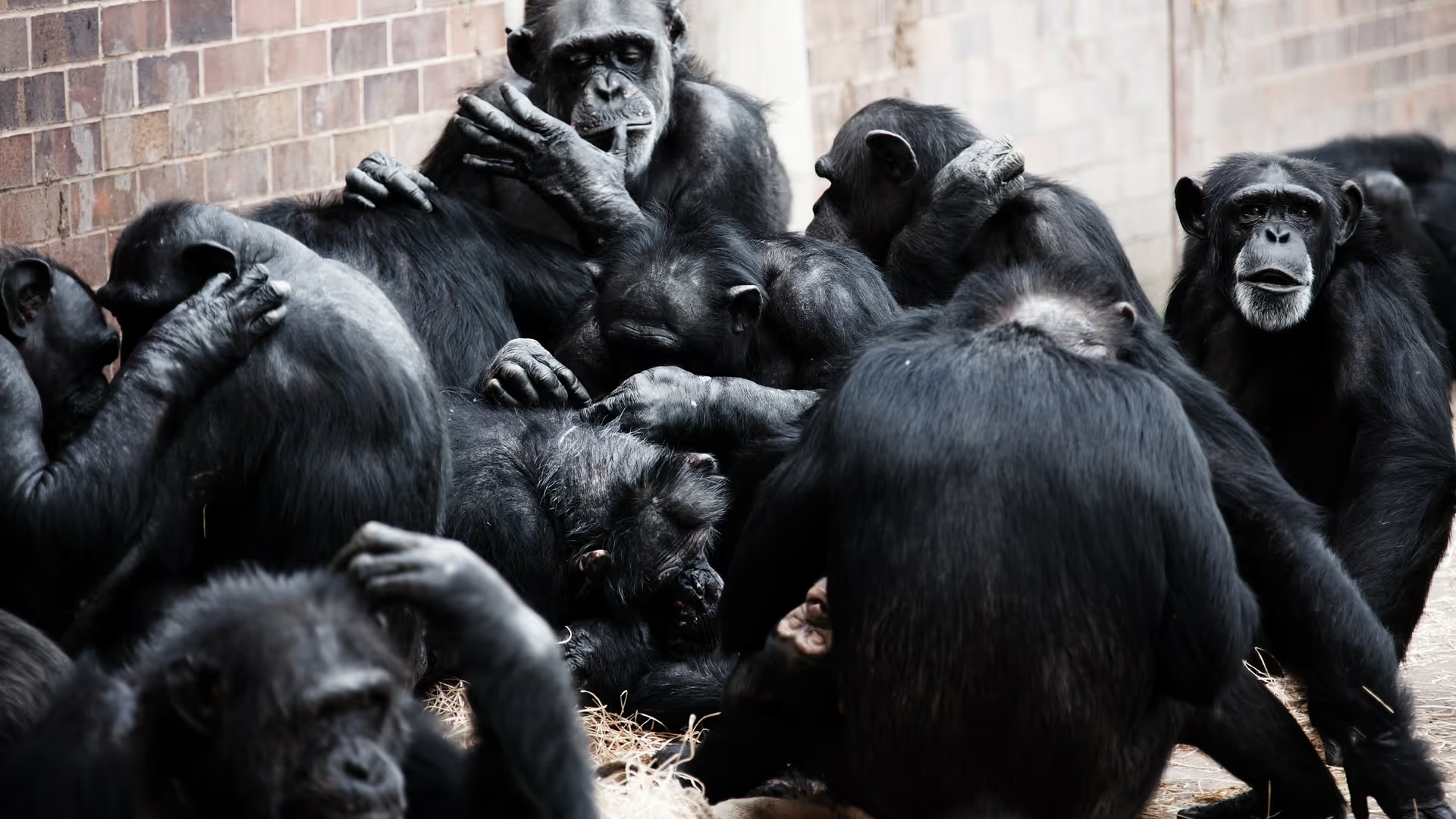Category: Biology
Events:
Articles:

October 7, 2025
Xenophobia in the Light of Evolution: On the Origins of Anti-Immigration Sentiment
Besides racial prejudice, what else is behind xenophobia? Among the evolved human instincts, we can find at least two for the anti-immigration sentiment: territoriality and the endowment effect.

September 26, 2025
Memo To Amazon's Jeff Bezos: The Most Productive Workers Are Team Players, Not Selfish Individualists
‘Ruthless’ and ‘demanding’ are two descriptors of Amazon's working environment, sink or swim. But Amazon is not alone. Can evolutionary biology shed some light on why competition in the workplace does not alway produce the best outcomes?

September 16, 2025
Teaching Evolution Requires More Than Evidence, It Takes Empathy
It is possible for people to be highly knowledgeable and reject evolution for reasons beyond evidence. When that happens, it is important to listen in order to understand why so we can bridge those gaps.

June 5, 2025
Evaluating Narratives of Conscious Evolution
Every person is in a position to start consciously evolving their meaning systems for the groups in their own lives.

August 13, 2024
Do We Sleep Better Than Our Ancestors? How Natural Selection and Modern Life Have Shaped Human Sleep
Human sleep presents a paradox: we are the shortest sleeping primate, yet we have the largest brain. If sleep is for the brain, why do humans exhibit the least sleep?

July 23, 2024
Public Health and Evolutionary Mismatch: The Tragedy of Unnecessary Suffering and Death
The current anti-vaccination movement is a result, in part, of the innate cognitive biases inherent in our nervous systems that evolved to deal with problems in a very different premodern world.

February 2, 2024
Functional Frivolity: The Evolution and Development of the Human Brain Through Play
Play is not frivolous but is an adaptation designed to guide proper cognitive development in human children.

January 18, 2024
Evolutionary Mismatch and What To Do About It
Mismatches are an inevitable consequence of evolution in changing environments, but some mismatches call for preventative measures to preserve what we value.

January 16, 2024
What Will It Take To Decolonize Ecology?
It is more important than ever to engage researchers from historically marginalized groups and the global South as equal partners in efforts to make Ecology and Evolutionary Biology genuinely collaborative and socially just.

January 9, 2024
Towards a New Understanding of the Relationship Between Humans and Nature
It is a sad reality that recognition for many scientists depends on their nationality and how much exposure they have obtained from the Global North rather than the intrinsic quality of their scientific research.

October 3, 2023
Why Teleology is the Elephant in Evolutionary Theory’s Room
The common denominator here is not consciousness, but the spontaneous emergence of systems that are agents, systems with teleological properties: the “end-directed” properties that unequivocally characterize life.

September 28, 2023
Can Evolution be Understood as a Conscious Process?
My approach is explored by considering Aristotelian Causal Categories, focusing on Final Cause. I then consider the possibility of understanding this question from an ‘internalist’ perspective.

September 21, 2023
One Culture, Two Cultures? How Many Cultures, How Long?
When asked “Can Evolution be Conscious?” reactions can occur aptly reflecting the “informal definition” (as stated in most dictionaries) of schizoid, that is, “having inconsistent or seemingly contradictory elements.”

September 12, 2023
Can Evolution Be Conscious of Itself? Yes, It Can!
Human beings are subject to the workings of evolution and are also aware of their role as shapers of the environment so as to consciously direct evolutionary change.

September 5, 2023
The Consciousness of Detachment and the Detachment of Consciousness
To speak of an evolution of consciousness as a natural event is to be committed to the idea that consciousness can be a further expression of something which is not yet consciousness but is a prerequisite for the possibility of consciousness.

August 16, 2023
The Evolution of Consciousness Enables Conscious Evolution
Understanding the evolution of consciousness provides the scaffolding for evolutionary science itself to consciously evolve, and to help human individuals and groups do so as well.

August 10, 2023
The Origins and Evolutionary Effects of Consciousness
How consciousness evolved and how consciousness has come to affect evolutionary processes are related issues.

August 8, 2023
Conscious Evolution is a Category Mistake
No, evolution is not a conscious process, and to think so is an example of what philosophers call a category mistake, predicated on a fallacy of equivocation.

October 4, 2021
Stewarding the Cultural Evolution of Complex Systems: The Case of Regenerative Agriculture
A conversation with Prof. Nicholas R. Jordan, founder of Forever Green which is one of the most ambitious efforts to transition from conventional farming practices to regenerative agriculture

April 20, 2021
Why Is A Polo Shirt Like A Peacock’s Tail?
Life history theory suggests that displays of luxury items provide signals with social goals.


December 22, 2020
Evolution and Contextual Behavioral Science: Symbolic Thought and Communication
Are there universal features of grammar and syntax?

December 18, 2020
Evolution and Contextual Behavioral Science: Learning
Can variation and selection within a lifetime be thought of evolutionarily?

December 15, 2020
Evolution and Contextual Behavioral Science: Introduction
This groundbreaking series of conversations seek to integrate Evolutionary Science and Contextual Behavioral Science with a larger audience.

August 4, 2020
Bringing Neuroscience and Sociology into Dialogue on Emotions to Better Understand Human Behavior
What this potential marriage suggests is there are great possibilities for research, particularly around social relationships.

June 15, 2020
The Cheating Cell: An Interview with Athena Aktipis
Understanding why and how both Twitter bots and cancer cells create conflict in different kinds of cooperative social systems may help us find new strategies to bring both kinds of disruptive behavior under control.

March 7, 2020
Evolving a Major Transition in the Internet Age
The theory of major transitions provides an all-encompassing framework to explore both the opportunities and challenges facing humanity in the Internet Age.

October 3, 2019
Seven Reasons Why Most Major Depression is Probably Not a Brain Disorder
If most MD, as it is currently diagnosed, is not a disorder, should we keep calling it Major Depression?

September 10, 2019
Blurring the Line Between “Others” – A Practical Application of Cultural Multilevel Selection Theory
Through a cultural multilevel selection perspective, seeing an individual “other” as human can shift the level of selection from within subgroups at a lower level to between groups at a higher level.

July 22, 2019
Master Class: A Conversation with Jonathan Birch About the Equivalence of Theories of Social Evolution
The controversy over group selection that emerged in the 1960’s seemed as if one theory could be rejected in favor of another, but it was really more like monolingual people declaring each other to be confusing and wrong.

May 10, 2019
Group Selection in Every Way Except Using the Words: A Critique of "The Goodness Paradox" by Richard Wrangham
Wrangham's new book on the evolution of cooperation gets many things right. But he errs in thinking that he can develop his thesis without invoking group selection.

January 15, 2019
Welcome to the Noösphere
An evolutionary teleological view would be that no matter where you are in the cosmos, that there is, under the right conditions, a direction toward more complex, organized structures (both physical and non-physical).
our newsletter



































































